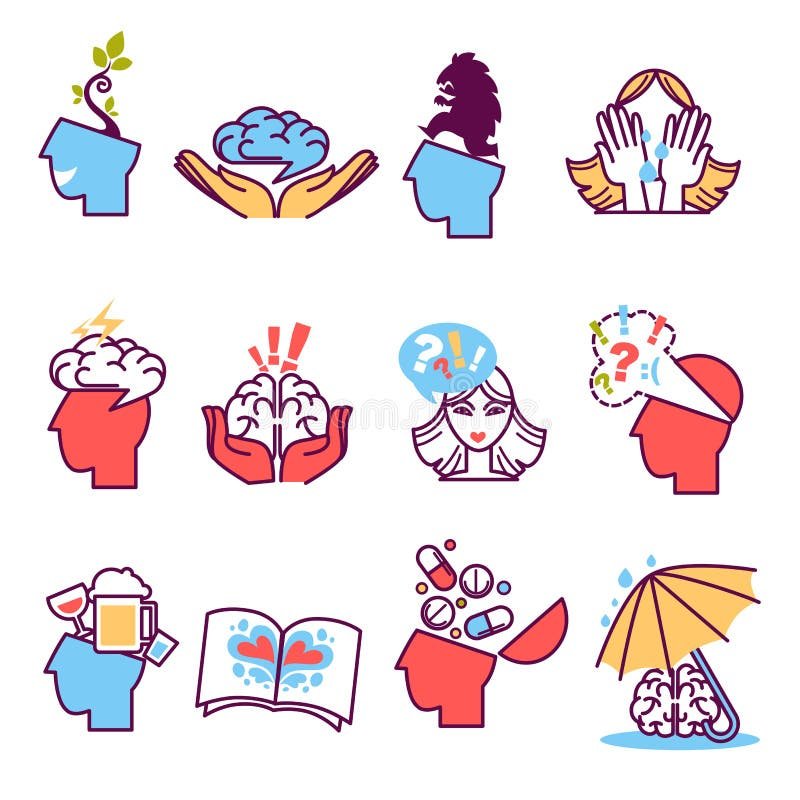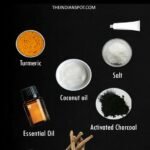Alternatives to ECT: Ketamine, TMS, and More Depression Treatments

In the realm of mental health treatment, Electroconvulsive Therapy (ECT) has been a controversial yet effective treatment for severe depression. However, due to its invasive nature and potential side effects, many patients and healthcare providers seek alternatives to ECT. Fortunately, advancements in psychiatric research have led to the development of various other treatments that can offer relief for those struggling with depression. This article explores a comprehensive list of alternatives to ECT, ranging from pharmacological solutions to holistic approaches, providing options for individuals seeking different paths to mental wellness.
- Antidepressant Medications
- Cognitive Behavioral Therapy (CBT)
- Interpersonal Therapy (IPT)
- Dialectical Behavior Therapy (DBT)
- Psychodynamic Therapy
- Transcranial Magnetic Stimulation (TMS)
- Vagus Nerve Stimulation (VNS)
- Deep Brain Stimulation (DBS)
- Light Therapy
- Exercise and Physical Activity
- Mindfulness and Meditation Practices
- Yoga and Tai Chi
- Ketamine Infusions
- Omega-3 Supplements
- Acupuncture
- Massage Therapy
- Herbal Supplements
- Peer Support Groups
- Lifestyle Changes
- EEG Biofeedback
- Art Therapy and Music Therapy
- Bibliotherapy
Antidepressant Medications
Antidepressant medications are often the first line of treatment for depression. These drugs work by altering the chemicals in the brain that are linked to mood and emotions. There are several classes of antidepressants, including selective serotonin reuptake inhibitors (SSRIs), serotonin and norepinephrine reuptake inhibitors (SNRIs), tricyclic antidepressants (TCAs), and monoamine oxidase inhibitors (MAOIs). Each class works differently and may be more effective for certain individuals than others. While antidepressants can be highly effective for many people, they do not work for everyone and can have side effects, leading some to seek alternatives to ECT and medication.
Cognitive Behavioral Therapy (CBT)
Cognitive Behavioral Therapy (CBT) is a widely used therapeutic approach that helps individuals identify and change negative thought patterns and behaviors that contribute to their depression. CBT is based on the concept that our thoughts, feelings, and behaviors are interconnected, and that changing negative thoughts and behaviors can lead to changes in our feelings. This therapy is typically short-term and focused on teaching practical skills that patients can use in their daily lives. CBT has been extensively researched and is considered one of the most effective alternatives to ECT for treating depression.
Interpersonal Therapy (IPT)
Interpersonal Therapy (IPT) is another evidence-based therapy that focuses on the interpersonal relationships of the patient. It operates on the premise that personal relationships are at the core of psychological problems. IPT helps patients improve their communication skills and increase their understanding of social interactions, which can lead to improved mood and reduced depression. This therapy is particularly useful for individuals whose depression is closely linked to their relationships with others, making it a valuable alternative to ECT.
Dialectical Behavior Therapy (DBT)
Dialectical Behavior Therapy (DBT) is a form of cognitive-behavioral therapy that was originally developed to treat borderline personality disorder but has since been adapted for other conditions, including depression. DBT emphasizes the development of coping skills to manage stress, regulate emotions, and improve relationships with others. It combines individual psychotherapy with group skills training classes to help individuals learn and apply new skills. DBT's comprehensive approach makes it an effective alternative to ECT for those with complex psychological conditions.
Psychodynamic Therapy
Psychodynamic Therapy explores the psychological roots of emotional suffering. It focuses on understanding the influence of past experiences, particularly childhood experiences, on current behavior and feelings. This therapy aims to help individuals gain insight into their lives and resolve deep-seated emotional conflicts. Psychodynamic Therapy can be a longer-term treatment option, but it offers depth and insight for individuals for whom other alternatives to ECT have been insufficient.
Transcranial Magnetic Stimulation (TMS)
Transcranial Magnetic Stimulation (TMS) is a non-invasive procedure that uses magnetic fields to stimulate nerve cells in the brain to improve symptoms of depression. TMS is typically used when other depression treatments haven't been effective. The procedure involves placing an electromagnetic coil against the scalp near the forehead. The electromagnet used in TMS creates electric currents that stimulate nerve cells in the region of the brain involved in mood control and depression. TMS has shown to be an effective alternative to ECT, with fewer side effects.
Vagus Nerve Stimulation (VNS)
Vagus Nerve Stimulation (VNS) involves the use of a device to stimulate the vagus nerve with electrical impulses. VNS is typically used to treat epilepsy, but it has also been approved by the FDA to treat depression. The device is surgically implanted under the skin on the chest, and a wire is threaded under the skin connecting the device to the vagus nerve. While VNS is more invasive than some other alternatives to ECT, it offers another option for treatment-resistant depression.
Deep Brain Stimulation (DBS)
Deep Brain Stimulation (DBS) is a surgical treatment involving the implantation of a neurostimulator, which sends electrical impulses to specific areas of the brain. DBS is primarily used to treat the symptoms of neurological disorders, such as Parkinson's disease, but it is also being explored as a treatment for depression. The procedure is invasive and typically considered only after other treatments, including other alternatives to ECT, have failed. However, for some with severe, treatment-resistant depression, DBS may offer hope.
Light Therapy
Light therapy involves exposure to daylight or specific wavelengths of light using lamps, boxes, or visors. It is commonly used to treat Seasonal Affective Disorder (SAD), a type of depression that occurs at a specific time of year, usually in the winter. Light therapy can also be beneficial for non-seasonal depression. The treatment is thought to affect brain chemicals linked to mood and sleep, easing depression symptoms. As a non-invasive and accessible treatment, light therapy is a popular alternative to ECT.
Exercise and Physical Activity
Exercise and physical activity have been shown to have a significant positive impact on depression symptoms. Physical activity can help increase the production of endorphins, which are chemicals in the brain that act as natural painkillers and mood elevators. Regular exercise can also help improve sleep, self-esteem, and energy levels, all of which can reduce depression. Whether it's structured exercise programs, such as running or swimming, or less formal activities, like walking or gardening, physical activity is a valuable alternative to ECT for managing depression.
Mindfulness and Meditation Practices
Mindfulness and meditation practices involve focusing one's attention on the present moment, while calmly acknowledging and accepting one's feelings, thoughts, and bodily sensations. These practices can help reduce stress, improve emotional regulation, and decrease symptoms of depression. Various forms of mindfulness and meditation, including mindfulness-based stress reduction (MBSR) and mindfulness-based cognitive therapy (MBCT), have been shown to be effective alternatives to ECT for treating depression.
Yoga and Tai Chi
Yoga and Tai Chi are forms of exercise that also incorporate elements of mindfulness and meditation. Both practices involve specific postures and movements, breathing exercises, and meditation. Yoga and Tai Chi can help reduce stress, improve physical and mental health, and enhance overall well-being. These practices have been found to be beneficial for individuals with depression, making them excellent alternatives to ECT.
Ketamine Infusions
Ketamine infusions involve the administration of ketamine, a medication traditionally used for anesthesia, at subanesthetic doses to treat depression. Ketamine has been shown to produce rapid antidepressant effects, even in individuals who have not responded to other treatments. While the long-term effects of ketamine treatment are still being studied, it represents a promising alternative to ECT for treatment-resistant depression.
Omega-3 Supplements
Omega-3 fatty acids, found in fish oil and certain plant oils, are essential nutrients that play a crucial role in brain health. Some studies suggest that omega-3 supplements may help reduce the symptoms of depression. Omega-3s are thought to contribute to the fluidity of cell membranes and influence brain function and mood. As a natural and non-invasive treatment, omega-3 supplements are a popular alternative to ECT for those looking to manage their depression through dietary supplements.
Acupuncture
Acupuncture is a traditional Chinese medicine technique that involves inserting thin needles into specific points on the body. It is believed to stimulate the body's natural healing processes and balance energy flow. Some research suggests that acupuncture can help alleviate symptoms of depression by affecting the levels of neurotransmitters in the brain. As a holistic treatment, acupuncture offers a unique alternative to ECT for individuals seeking non-pharmacological depression treatments.
Massage Therapy
Massage therapy involves the manipulation of the body's soft tissues to promote relaxation and well-being. It can help reduce stress, improve circulation, and decrease muscle tension. While massage therapy is often used for physical ailments, it can also have psychological benefits, including reducing symptoms of depression. As a complementary treatment, massage therapy can be a soothing alternative to ECT for those looking to alleviate depression through physical relaxation techniques.
Herbal Supplements
Herbal supplements, such as St. John's Wort and SAMe (S-adenosylmethionine), have been used for centuries to treat various ailments, including depression. St. John's Wort is believed to increase the levels of neurotransmitters in the brain, such as serotonin, which can improve mood. SAMe is a naturally occurring compound that has been shown to boost mood and have antidepressant effects. While herbal supplements can be effective for some individuals, it's important to consult with a healthcare provider before starting any new treatment, as they can interact with other medications. Herbal supplements represent a natural alternative to ECT for those interested in botanical remedies for depression.
Peer Support Groups
Peer support groups provide a space for individuals with depression to share their experiences, offer support, and learn from others who are facing similar challenges. These groups can help reduce feelings of isolation, provide valuable coping strategies, and foster a sense of community. Peer support can be an important component of a comprehensive treatment plan, serving as a supportive alternative to ECT for those seeking connection and understanding from others who understand what they are going through.
Lifestyle Changes
Making lifestyle changes, such as improving diet, enhancing sleep hygiene, and reducing stress, can have a significant impact on depression. A healthy diet can provide the nutrients necessary for brain health, while adequate sleep is essential for emotional and psychological well-being. Stress reduction techniques, such as relaxation exercises and time management strategies, can also help alleviate depression symptoms. Lifestyle changes are a fundamental alternative to ECT, offering a holistic approach to managing depression.
EEG Biofeedback
EEG Biofeedback, also known as neurofeedback, is a technique that teaches individuals to alter their brain activity. It involves monitoring the brain's electrical activity through electrodes placed on the scalp. Participants receive real-time feedback and learn to control or change their brain patterns. EEG Biofeedback has been used to treat various conditions, including depression, by helping individuals learn to regulate their emotional responses. This technology-based approach provides a novel alternative to ECT for those interested in leveraging neuroplasticity to address depression.
Art Therapy and Music Therapy
Art therapy and music therapy are forms of expressive therapy that use the creative process of making art or music to improve a person's physical, mental, and emotional well-being. These therapies can help individuals express themselves, explore their emotions, and develop coping skills. Art and music therapy can be particularly beneficial for those who find it difficult to express their feelings through words. As therapeutic alternatives to ECT, these creative therapies offer unique pathways to healing and self-discovery.
Bibliotherapy
Bibliotherapy involves the use of books and other reading materials as a therapeutic intervention. It can include reading self-help books, literature, or other materials that provide insight, comfort, or guidance on coping with depression. Bibliotherapy can be a self-directed treatment or part of a structured therapy program. It offers a low-cost, accessible alternative to ECT for those seeking to understand and manage their depression through the power of reading.
While ECT remains a valuable treatment option for severe depression, there are numerous alternatives to ECT available for those seeking different approaches. From pharmacological treatments and psychotherapy to holistic and lifestyle interventions, individuals have a wide range of options to explore. It's important for patients to work closely with their healthcare providers to determine the most appropriate treatment plan based on their unique needs and circumstances. With the right support and treatment, it is possible to manage depression and improve quality of life.





Leave a Reply